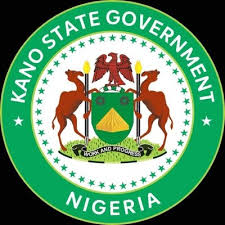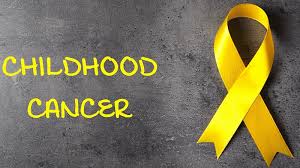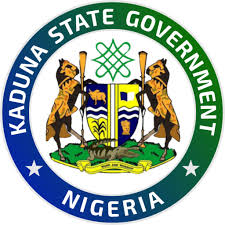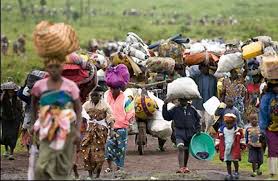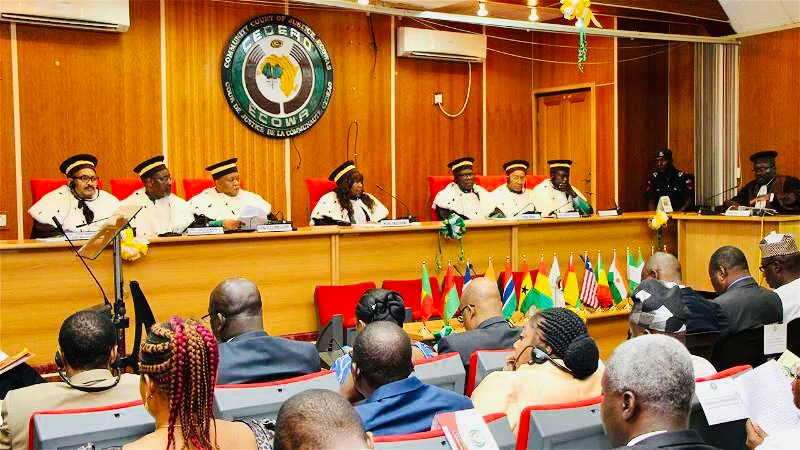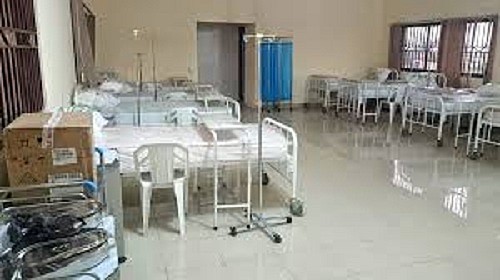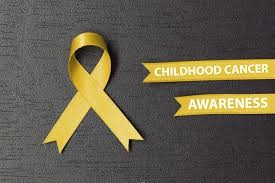466 total views today
By Folasade Akpan, News Agency of Nigeria (NAN)
Annually, on Feb. 15, the International Childhood Cancer Day (ICCD) is commemorated as a global campaign to create awareness about childhood cancer and support for the patients, survivors and their families.
In Nigeria, survivors recall nauseating experiences, while relevant authorities, stakeholders and health experts are stepping up efforts to curb the menace.
At just eight years old, Adekemi Oyewusi was diagnosed with Burkitt’s lymphoma, a disease she and her family had never even heard of.
The next two years of her life were marked by pain, isolation and an uphill battle against a disease that stole her childhood.
Oyewusi has chilling reminiscences.
“I longed to play with my siblings and peers, but my world was confined to the four walls of a hospital, where pain and solitude became my constant companions.’’
The chemotherapy treatments, administered through her spinal cord, were excruciating.
The nausea, the fatigue and the devastating sight of her hair falling out left her feeling like a shadow of her former self; but against all odds, she survived.
Now, 25 years later, Oyewusi is not just a survivor, she is an advocate, amplifying the voices of children battling cancer and pushing for equitable healthcare policies.
She believes that while Nigerian children with cancer demonstrate incredible resilience, their journey could be made easier with more support.
“It is crucial for the government, healthcare providers, philanthropists, NGOs and society at large to recognise and address the unique needs of survivors.
“Comprehensive insurance plans, increased awareness of late effects, educational support and psychological counselling are all necessary,” she said.
She called for more paediatric oncology centres across the country, greater financial support for affected families and public awareness campaigns to educate communities on early detection.
Shittu Adewumi also had an unsavoury experience.
Adewumi’s story echoes the struggles of many children fighting cancer in Nigeria.
Diagnosed with lymphocytic leukaemia at just six years old, his family believed they were witnessing the end of his young life.
His mother, Titilayo Adewumi, recalls the harrowing experience.
“It was harrowing; he suffered immensely and the cost of treatment was unbearable.”
Now 14 years old and back in school, Adewumi has shown remarkable progress, thanks in part to the support of the Okapi Children Cancer Foundation.
According to Adewumi’s mother, childhood cancer places enormous financial strain on families.
“The government should support children fighting cancer because this is not something one family can handle alone; it is a huge financial burden.
“When you visit Federal Government hospitals, you see so many children battling cancer; they need urgent help,” she pleads.
According to the World Health Organisation (WHO), an estimated 400,000 children and adolescents aged zero to 19 years develop cancer globally each year.
The organisation also said that unlike many adult cancers, most childhood cancers have no known cause and are not linked to lifestyle or environmental factors.
In Nigeria, the exact prevalence of childhood cancer remains unclear due to poor data collection.
However, the Lagos University Teaching Hospital (LUTH) Cancer Centre houses the country’s first Childhood Population-Based Cancer Registry, which has recorded 237 cases in just over a year.
Prof. Abidemi Omonisi, the President, Nigeria Cancer Society (NCS) and founder of the registry, warns that childhood cancer is indeed on the rise and needs urgent attention.
“For too long, the focus has been on breast, cervical and prostate cancers, while childhood cancer has been neglected,” he said.
Dr Timipah West, a paediatric oncologist at Niger Delta University Teaching Hospital, identifies some of the most prevalent childhood cancers in Nigeria to be Lymphomas such as Burkitt’s lymphoma, Neuroblastoma a cancer of the adrenal glands and Nephroblastoma known as kidney cancer.
Others are Retinoblastoma (eye cancer affecting the retina), Rhabdomyosarcoma (cancer of the muscle tissue) and acute leukaemia (blood cancer affecting white blood cells).
West said that while the causes remained largely unknown, potential risk factors of childhood cancer included genetic predispositions, exposure to chemicals, certain infections and environmental changes.
Speaking to reasons why childhood cancer was now on the increase in Nigeria, she said it was due to a lot of factors.
She identified an increase in diagnostic capabilities and availability of more treatment facilities and more awareness among the populace about childhood cancers based on increased advocacy as some of the reasons.
The oncologist also added environmental factors including climate change that lead to genetic changes as also a contributing factor.
“The Nigerian Society of Paediatric Oncology (NISPO) working with NCS and the Federal Ministry of Health and Social Welfare play huge roles in creating awareness on childhood cancer.
“This advocacy is very important because some people in the general public think that only adults can have cancers.”
She noted that preventive measures could be employed before the cancer develops.
West listed the measures as early detection and commencement of treatment to prevent complications and death.
According to her, genetic studies can be done for those at risk of developing certain cancers, so they are identified at the very early stages.
She added that those with conditions that predisposed them to certain cancers such as down syndrome and leukaemia should be followed up closely and treatment commenced as soon as possible.
“Also, adequate diet, environmental protection against climate change and chemicals and drug exposure are very important.
“The introduction of Human Papilloma Virus (HPV) Vaccination that can prevent future development of cervical cancer is also very important.
“Treatment options available include chemotherapy, surgery, radiotherapy and immunotherapy.
“The most commonly available in Nigeria are chemotherapy and surgery.”
West emphasised that childhood cancer was treatable when detected early with available treatment options in Nigeria including chemotherapy, surgery for tumour removal, radiotherapy and immunotherapy which was still emerging.
She also advocated preventive measures such as genetic screening for children with a family history of cancer.
According to the oncologist, reducing environmental exposure to harmful chemicals and pollutants is essential too.
Recognising the urgent need for action, the Federal Ministry of Health and Social Welfare has begun prioritising childhood cancer treatment.
Dr Uche Nwokwu, the Coordinator, National Cancer Control Programme (NCCP), highlights recent policy shifts aimed at improving outcomes for children.
“One major breakthrough was Nigeria’s acceptance into the Global Initiative for Childhood Cancer (GICC), a WHO-led effort aimed at increasing childhood cancer survival rates worldwide.
“This inclusion means that Nigeria will now benefit from donations, research partnerships, and support from institutions like St. Jude Children’s Research Hospital in the United States,” Nwokwu explains.
He said that the Federal Government had included childhood cancer treatment in the 2025 Appropriation Bill, signalling a commitment to funding care for affected children.
While childhood cancer in Nigeria remains a growing crisis, the increasing attention from government agencies, NGOs and international bodies offers a glimmer of hope.
Health analysts say with early diagnosis, improved healthcare policies and increased funding, survival rates can improve dramatically. (NANFEATURES)
***If used, please credit the writer and the News Agency of Nigeria.



